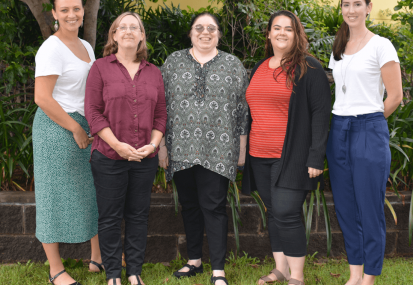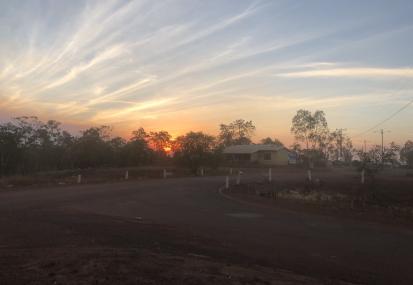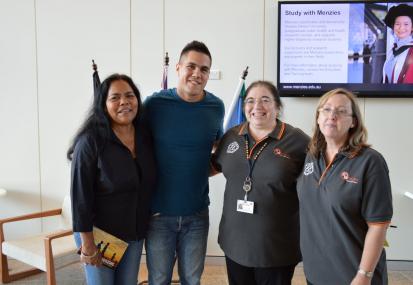Check out the first Life Course Studies newsletters for the year, where you will read the latest
Young Adulthood
2013 - 2015 Young Adulthood
Young adulthood is a time of change. It is a time when people leave school and often move out of the family home. It is also an age where concerns about health, particularly mental health, are high but people do not engage with health services and health information remains sparse. Participants of both the TEC and ABC study underwent a comprehensive health assessment when they were aged 22-27 years. Once again the research team lead by Associate Professor Gurmeet Singh visited over 40 urban and remote communities and outstations across the NT.
People
Dr Gurmeet Singh, Belinda Davison, Joseph Fitz, Jennifer Goodall, Sarah Whalan, Katie Montgomery-Quin, Methinee Intarapanya, Evan McRobb and Laura Bell made up the core research group.
Data collected
The same core data including body size, shape and composition, cardiovascular measures and renal function, emotional status and lifestyle factors were once again assessed. These were expanded upon in this wave to include additional inflammatory markers, respiratory function and additional lifestyle markers such as major life events and stress biomarkers.
Following the mandatory fortification of iodized salt in bread in 2009, repeat urine iodine levels were assessed to ascertain the impact this national intervention had on the iodine status of young people in the Top End.
Findings
459 of the original cohort were seen at mean age 25 years.
Majority of peole were in the healthy weight range.
The low prevalence of chronic disease markers in young adulthood suggests that there is still a window of opportunity beyond childhood to target interventions aimed at reducing the high burden of chronic disease in this high risk population.
Aboriginal Birth Cohort
People involved in this study


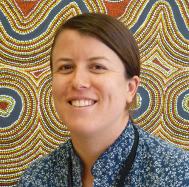
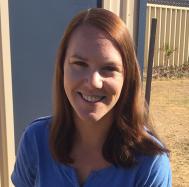


Related publications
| Year | Study | Citation | View |
|---|---|---|---|
|
2011 |
Aboriginal Birth Cohort |
Cunningham TE, Sayers SM, Singh GR. Lipoprotein(a) identifies cardiovascular risk in childhood: The Australian Aboriginal Birth Cohort Study. J Paediatr Child Health. 2011 Jan 18. |
|
|
2018 |
Aboriginal Birth Cohort |
Cheah, B.C., Davies, J., Singh, G.R., Wood, N., Jackson, K., Littlejohn, M., Davison, B., McIntyre, P., Locarnini, S., Davis, J.S. and Tong, S.Y.C., 2018. Sub-optimal protection against past hepatitis B virus infection where subtype mismatch exists between vaccine and circulating viral genotype in northern Australia. Vaccine, 36(24), pp.3533-3540. |
|
|
2007 |
Aboriginal Birth Cohort |
Sayers S, Mackerras D, Halpin S, Singh G. Growth outcomes for Australian Aboriginal children aged 11 years who were born with intrauterine growth retardation at term gestation. Paediatr Perinat Epidemiol. Sep 2007;21(5):411-417. |
|
Related news
Our team have returned from our first trip to Wadeye - the largest Aboriginal remote community in
'Menzies runs next phase of Aboriginal health study', featured in Issue 6 of CDU E-news

